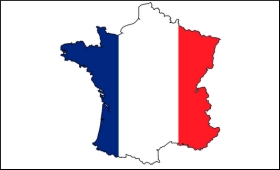|

|
French companies to continue investing around 1 bn in India
|
|

|
|
| Top Stories |
 |
|
|
|
Rohit Vaid | 25 Apr, 2014
Expressing confidence in the Indian economy, French companies that are engaged in India will continue to annually invest nearly $1 billion here as they see long-term future in the country's growth potential, a top diplomat has said.
"I expect the investment trend of nearly a billion dollars to continue as the French companies are here for the long-term and are setting up their base here and expanding production," French Ambassador François Richier said in an interview in New Delhi.
According to the ambassador, the co-operation between the two countries is of utmost importance and exchange of know-how between the two sides is growing.
"Till now French companies have invested nearly $19 billion here; they have also provided know-how and technology and generated jobs. The companies are here for long term and not just to make profits and leave."
On the long-pending Indo-EU Free Trade Agreement which is in the works for the last seven years with no sight of closure, the ambassador was optimistic the deal will be expedited once a new government is formed in New Delhi.
"I don't know if it is going to be a new government or the old government but the deal needs to be expedited as it is in favour of all. It's already been three years and I expect that the negotiators will soon reach common ground," Reicher added.
Negotiations on the FTA, officially dubbed the Broad-based Trade and Investment Agreement (BTIA) between India and the 28-nation EU, were launched in June 2007 but have been facing hurdles with both sides having differences on crucial issues.
Negotiations entered an intense phase following the EU-India Summit in February 2012.
Important issues include market access for goods, the overall ambition of the services package and achieving a meaningful chapter on government procurement.
The EU wants India to open up its banking and insurance sectors and significantly cut duty on automobiles, wines and spirits and dairy products and enforce a strong intellectual property rights (IPR) regime.
India, on the other hand, wants liberalised visa norms for its professionals and market access in the services and pharmaceuticals sector.
However, the Indian automobiles industry has raised an alarm over the sector being included in the FTA, claiming it will kill investments and technology flow into the country, resulting in under-achievement of the government's automotive mission plans.
The EU is India's largest trading partner. The value of EU-India trade has grown from 28.6 billion euros ($38 billion/Rs.2.3 trillion) in 2003 to 79.9 billion euros in 2011.
According to French embassy data, the volume of bilateral trade between France and India slowed down in 2011 to 5.8 percent at 7.46 billion euros.
Major French companies like Alstom have been present in India for the last 100 years, while others like hotel chain Accor, public transport solutions major Keolis, automobile manufacturer Renault, insurance firm AXA, aircraft manufacturer Airbus and utility company PR Fonroche have a presence in India.
The envoy further elaborated that Europe's fiscal health is improving thanks to efforts being made by EU countries for resolving the debt crisis, including the use of two major instruments like the European Stability Mechanism (ESM) and the Fiscal Compact.
"Europe is improving and it is still very attractive for Indian companies. The potential for trade and growth is enormous," Richer told repoters.
The ESM provides for buying up to 780 billion euros (around $1 trillion) sovereign bonds of euro zone countries which are under financial stress.
The Fiscal Compact envisages a singular economic governance policy for the euro zone, including monetary policy and further integration.
|
|
|
| |
|
|
|
|
|
|
|
|
|
|
|
|
|
|
| |
| Customs Exchange Rates |
| Currency |
Import |
Export |
US Dollar
|
66.20
|
64.50 |
UK Pound
|
87.50
|
84.65 |
Euro
|
78.25
|
75.65 |
| Japanese
Yen |
58.85 |
56.85 |
| As on 13 Aug, 2022 |
|
|
| Daily Poll |
 |
 |
| PM Modi's recent US visit to redefine India-US bilateral relations |
|
|
|
|
|
| Commented Stories |
 |
|
|
|
|
|
| |
|